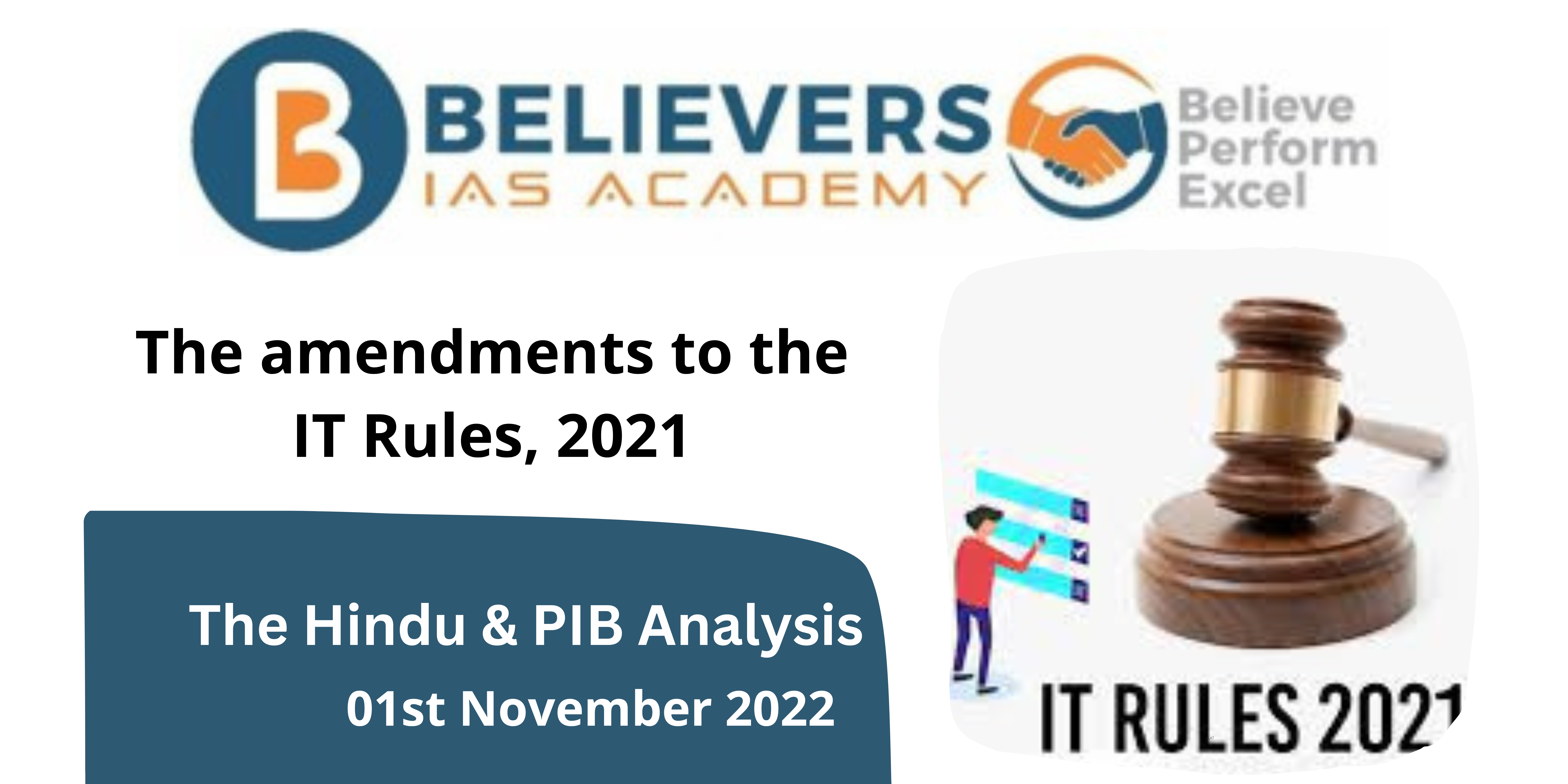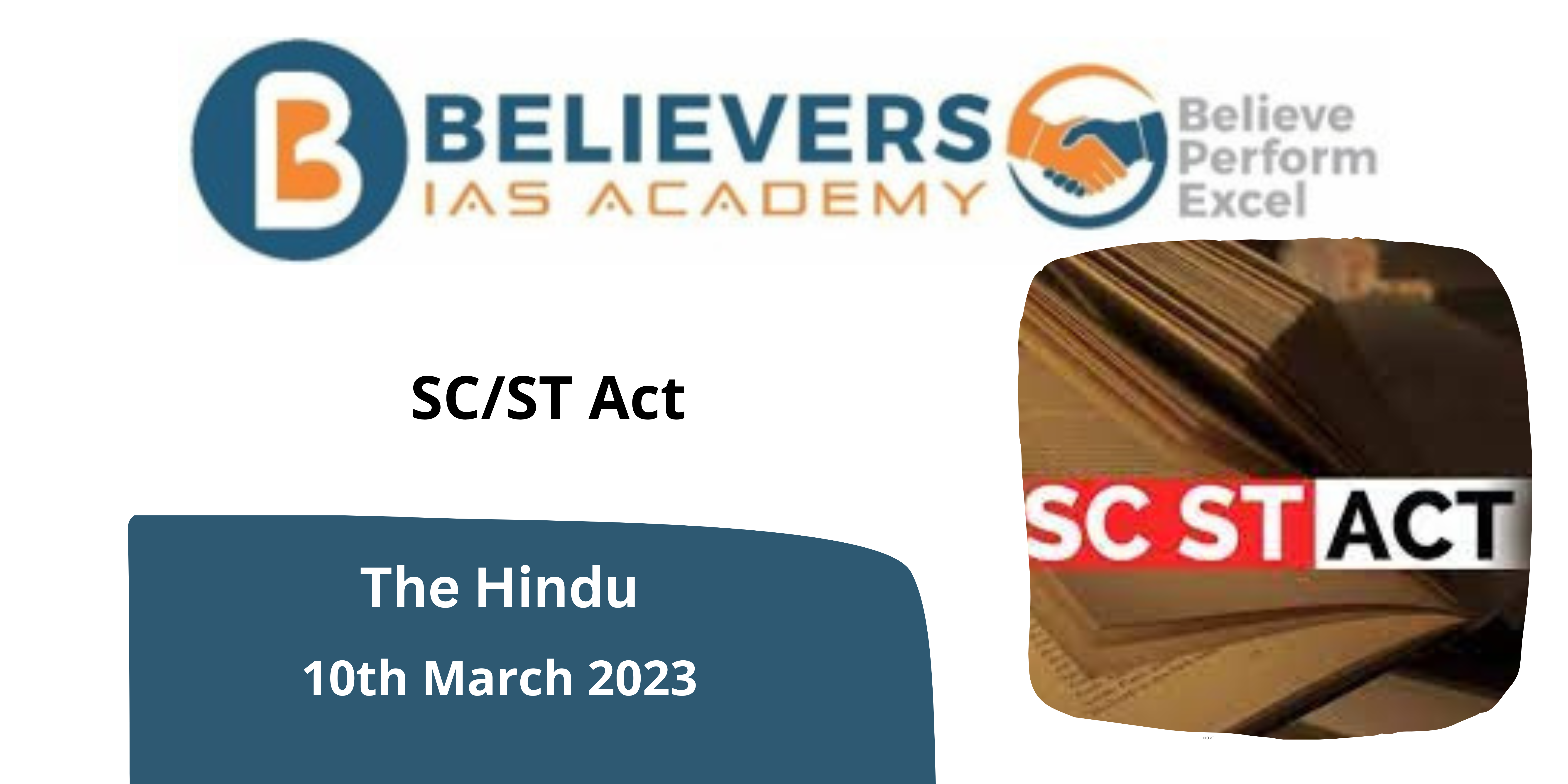The amendments to the IT Rules, 2021
#GS-02 Governance
For Mains:
The issue:
The Ministry of Electronics and IT (MeitY) has notified amendments to the Information Technology (Intermediary Guidelines and Digital Media Ethics Code) Rules, 2021 (IT Rules, 2021) on October 28.
The need to amend the IT Rules:
- There is a growing impact of social media intermediaries (SMIs) in shaping public discourse.
- There are also concerns of the impact of their governance on the right to freedom of speech and expression, the magnitude of information they host and the constant technological innovations that impact their governance.
- These concerns meant that it is important for governments to update their regulatory framework to face these emergent challenges.
The aim of the amendment:
- First, there was a need to ensure that the interests and constitutional rights of netizens are not being contravened by big tech platforms.
- Second, to strengthen the grievance redressal framework in the Rules.
- Third, that compliance with these should not impact early stage Indian start-ups.
What are the new proposed amendments?
The proposed amendments can be broadly classified into two categories.
- The first category involved placing additional obligations on the SMIs to ensure better protection of user interests.
- The second category involved the institution of an appellate mechanism for grievance redressal.
- The amendments call for the institution of Grievance Appellate Committees (GAC).
- The committee is styled as a three member council out of which one member will be a government officer (holding the post ex officio) while the other two members will be independent representatives.
- The GAC is required to adopt an online dispute resolution mechanism which will make it more accessible to the users.
The additional obligations on SMIs:
- First, the original IT Rules, 2021 obligated the SMIs to merely inform its users of the “rules and regulations, privacy policy and user agreement” that governed its platforms along with the categories of content that users are prohibited from hosting, displaying, sharing etc. on the platform.
- This obligation on the SMIs has now been extended to ensuring that its users are in compliance with the relevant rules of the platform.
- Further, SMIs are required to “make reasonable” efforts to prevent prohibited content being hosted on its platform by the users.
- Secondly, there is now an obligation on SMIs to “respect all the rights accorded to the citizens under the Constitution, including in the articles 14, 19 and 21”.
- Third, SMIs are now obligated to remove information or a communication link in relation to the six prohibited categories of content as and when a complaint arises.
- They have to remove such information within 72 hours of the complaint being made.
- Lastly, SMIs have been obligated to “take all reasonable measures to ensure accessibility of its services to users along with reasonable expectation of due diligence, privacy and transparency”.
- The amendments also mandate that “rules and regulations, privacy policy and user agreement” of the platform should be made available in all languages listed in the eighth schedule of the Constitution.
About Grievance Appellate Committees:
- Prior to the IT Rules, 2021, platforms followed their own mechanisms and timelines for resolving user complaints.
- The IT Rules uniformed this by mandating that all social media platforms should have a grievance officer who would acknowledge the receipt of a complaint within 24 hours and dispose it within 15 days.
- However, the performance of the current grievance redressal mechanism has been sub-optimal.
- This may be because users are either not aware of this facility or find it futile to approach the platform for complaint resolution.
- To remedy this, the government has instituted Grievance Appellate Committees (GAC). The committee is styled as a three-member council out of which one member will be a government officer (holding the post ex officio) while the other two members will be independent representatives.
- Users can file a complaint against the order of the grievance officer within 30 days.
- Importantly, the GAC is required to adopt an online dispute resolution mechanism which will make it more accessible to the users.
- However, it is unclear whether this is a compulsory tier of appeal or not, that is will the user have to approach the grievance appellate committee before approaching the court.




